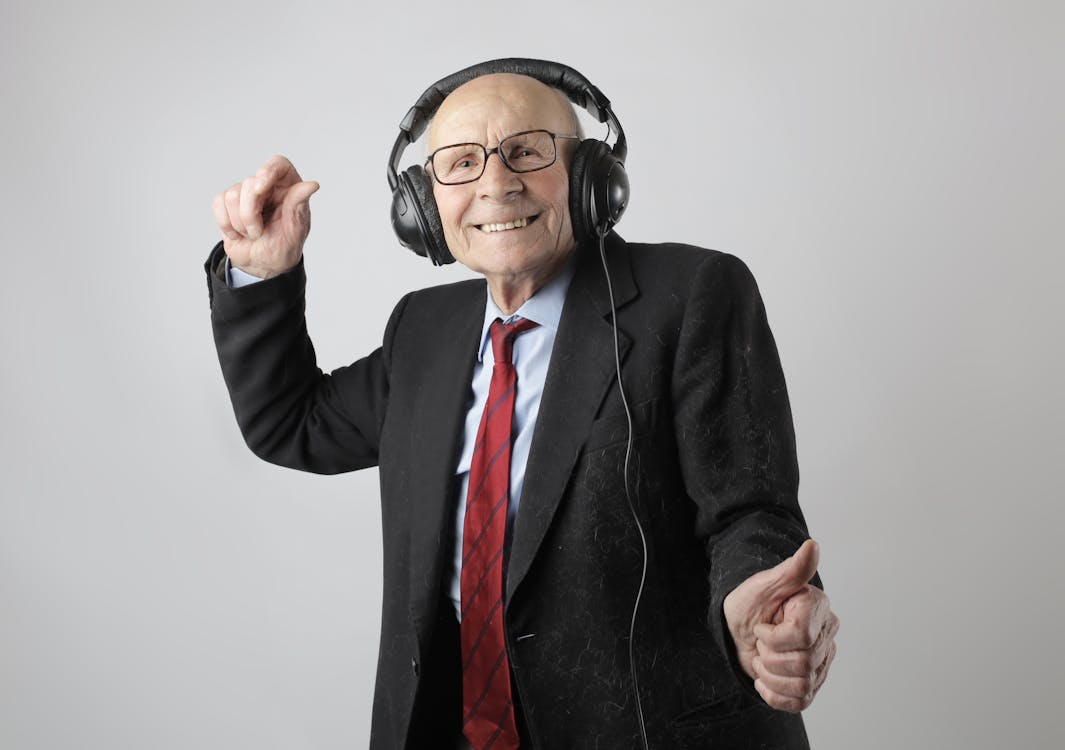Music therapy is a clinical and evidence-based practice that uses music interventions to accomplish individualized goals within a therapeutic relationship. It is conducted by a credentialed professional who has completed an approved music therapy program. Music therapy is a versatile and dynamic form of therapy that integrates music into the therapeutic process to promote emotional, mental, and physical healing and growth.
Brief History of Music in Healing
The use of music as a healing tool dates back to ancient times. Historical records from various cultures, including the Greeks, Egyptians, and Indians, show that music was used in rituals, ceremonies, and medical practices to promote healing and well-being. In the 20th century, particularly after World Wars I and II, music was used systematically to treat soldiers suffering from war-related emotional and physical trauma, giving rise to the formal establishment of music therapy as a professional discipline.
This article aims to explore the therapeutic benefits of music, delving into its scientific underpinnings, clinical applications, and practical methods. It seeks to provide a comprehensive overview of how music therapy works, its effectiveness in various settings, and how individuals can access and utilize music therapy for personal healing and growth.
The Science Behind Music Therapy

Neurological Effects of Music on the Brain
Music has a profound impact on the brain, influencing various neurological processes. Research has shown that listening to music can stimulate the release of neurotransmitters like dopamine and serotonin, which play a crucial role in mood regulation and emotional well-being. Music also activates multiple brain regions, including those associated with emotion, memory, and motor control. This widespread activation can enhance cognitive functions, improve memory recall, and even aid in neuroplasticity, which is the brain’s ability to reorganize itself by forming new neural connections.
Psychological Impact of Music
Music’s impact on psychology is as significant as its neurological effects. It can evoke a wide range of emotions, from joy and relaxation to sadness and nostalgia. This emotional response to music can be harnessed in therapy to explore and process complex feelings, facilitate self-expression, and promote psychological healing. For instance, music therapy has been found effective in reducing symptoms of anxiety and depression, improving self-esteem, and enhancing the overall quality of life.
Physiological Responses to Music
The influence of music extends to the body’s physiological responses. Listening to music can lead to physical changes such as reduced heart rate, lower blood pressure, and decreased levels of stress hormones like cortisol. These responses not only contribute to a feeling of relaxation and calm but can also have direct health benefits, such as improving cardiac health and boosting the immune system. Additionally, rhythmic elements of music can aid in physical rehabilitation, helping patients improve their motor skills and coordination.
Music Therapy in Clinical Settings

Use in Mental Health Treatment
- Depression and Anxiety: Music therapy has shown promising results in treating depression and anxiety disorders. By engaging patients in music-making activities or listening sessions, therapists can help alleviate symptoms of depression and anxiety, enhance mood, and provide a non-verbal outlet for expressing emotions.
- Stress and PTSD: For individuals suffering from stress and post-traumatic stress disorder (PTSD), music therapy can be a powerful tool for relaxation and emotional processing. It helps in reducing the physiological markers of stress and can be particularly effective in helping PTSD patients process trauma in a safe and controlled environment.
- Substance Abuse and Addiction Recovery: In addiction recovery, music therapy can support patients by providing a healthy emotional outlet, reducing cravings, and aiding in the exploration of underlying emotional issues related to substance abuse.
Music Therapy for Physical Ailments
- Pain Management: Music therapy is increasingly used in pain management. It can distract from pain, reduce the perception of pain, and provide a soothing and calming experience for patients dealing with chronic pain or undergoing medical procedures.
- Rehabilitation and Physical Therapy: In physical rehabilitation, music therapy can improve motor skills, coordination, and movement in patients recovering from strokes, injuries, or surgeries. The rhythm and tempo of music can guide physical exercises, making them more engaging and effective.
- Neurological Disorders and Brain Injury Recovery: Music therapy has shown benefits in treating various neurological disorders, including Parkinson’s disease and Alzheimer’s. It can help improve cognitive function, memory, and speech abilities in patients with brain injuries or degenerative neurological conditions.
Music Therapy with Different Age Groups
- Children and Adolescents: For young patients, music therapy can aid in developmental and emotional challenges, improve social skills, and provide a way to express feelings they might not yet have the words to articulate.
- Adults and the Elderly: In adults and the elderly, music therapy can enhance cognitive function, boost emotional well-being, and provide a sense of community and belonging, especially in group settings. It is also beneficial in elder care, particularly for those with dementia, helping to recall memories and improve the quality of life.
Methods and Techniques in Music Therapy

Active vs. Passive Music Therapy
- Active Music Therapy: This involves the active participation of the client in creating music. It can include playing instruments, singing, writing songs, or engaging in improvisation. Active music therapy is often used to improve motor skills, enhance emotional expression, and foster social interaction.
- Passive Music Therapy: In passive music therapy, clients listen to music selected by the therapist. This method is used to induce relaxation, reduce anxiety, and facilitate a meditative or reflective state. It’s particularly effective for clients who may be less able or willing to actively participate in making music.
Group vs. Individual Sessions
- Group Sessions: Music therapy in a group setting can foster a sense of community, enhance social skills, and provide peer support. It’s beneficial for clients who might benefit from interaction and learning from others’ experiences.
- Individual Sessions: Tailored to the specific needs of the individual, these sessions provide a more personalized approach. They are ideal for clients who require focused attention or for those who may feel uncomfortable expressing themselves in a group.
Integration with Other Therapeutic Approaches
- Combining with Psychotherapy: Music therapy can be integrated with traditional psychotherapy techniques, such as cognitive-behavioral therapy, to enhance emotional exploration and expression.
- Holistic Approaches: It can also be part of a holistic treatment plan, combining with practices like yoga, meditation, or art therapy, to address the needs of the client on multiple levels – physical, emotional, and spiritual.
- Technological Integration: The use of technology in music therapy, such as digital music creation tools, apps, and virtual reality, is expanding the possibilities for therapy and making it more accessible.
Challenges and Limitations of Music Therapy

Accessibility and Availability
- Limited Access in Certain Regions: Despite its proven benefits, music therapy is not universally available. In many areas, especially rural or underprivileged communities, access to qualified music therapists and programs is limited.
- Insurance and Funding Issues: The coverage of music therapy by insurance plans is not consistent, posing financial challenges for those who might benefit from it. Additionally, funding for music therapy programs in institutions like schools and hospitals is often limited.
Misconceptions and Skepticism
- Public Perception: There are still misconceptions about music therapy, with some viewing it as a less serious or supplementary form of treatment. This skepticism can hinder its acceptance and integration into mainstream healthcare.
- Need for More Awareness: The lack of widespread understanding about what music therapy entails and its benefits means that it is often underutilized. Increased awareness and education are needed to change perceptions and encourage its use.
Need for Further Research
- Expanding the Evidence Base: While there is substantial evidence supporting the effectiveness of music therapy, more research is needed, particularly in new and emerging areas of application.
- Standardization of Practices: The field of music therapy is diverse, with various techniques and approaches. There is a need for more standardized protocols and guidelines to ensure consistency and quality of care across different practitioners and settings.
How to Incorporate Music Therapy into Everyday Life

Simple Techniques for Self-Care
- Creating Personal Playlists: Encourage individuals to curate playlists that resonate with their emotions and needs. This could be for relaxation, motivation, or emotional expression. Tailoring a playlist to one’s mood can be a powerful tool in managing daily stress and enhancing emotional well-being.
- Mindful Listening: Practice mindful listening to music. This involves focusing on different elements of the music, such as melody, lyrics, and rhythm. Mindful listening can foster a deeper connection with the music, enhancing awareness and promoting relaxation.
- Engaging in Musical Activities: Engage in simple musical activities at home. This could include singing, playing an instrument, or even rhythmic drumming. These activities can serve as a creative outlet to relieve stress and enhance overall well-being.
Finding a Music Therapist
- Research and Referrals: Start by researching qualified music therapists. Utilize resources like professional associations, online directories, and referrals from healthcare providers. These resources can help in finding a therapist who aligns with your specific needs.
- Evaluating Credentials and Experience: When choosing a music therapist, consider their credentials, areas of specialization, and experience. It’s important to ensure that they are qualified and have the experience to meet individual therapeutic needs.
Online Resources and Apps
- Digital Platforms for Music Therapy: Explore various online platforms and mobile apps that offer music therapy sessions, guided musical activities, and educational resources. These digital tools can be a great way to access music therapy, especially for those who prefer self-guided sessions.
- Teletherapy Options: Consider remote music therapy sessions, known as teletherapy. This is a viable option for those who have limited access to in-person services. Teletherapy can provide flexibility and convenience while still offering the benefits of music therapy.
Conclusion: The Healing Power of Music
This article has explored the multifaceted nature of music therapy, highlighting its scientific basis, diverse applications in clinical settings, various methods and techniques, impactful case studies, and the challenges it faces. We’ve seen how music therapy can positively affect neurological, psychological, and physiological aspects of health, offering a unique and powerful tool for healing and well-being.
The future of music therapy looks promising, with growing recognition and integration into mainstream healthcare. Advances in technology and research are likely to expand its reach and effectiveness. As awareness grows, we can expect wider acceptance and utilization of music therapy, potentially leading to more accessible services and insurance coverage.
Final Thoughts on the Role of Music in Healing
Music therapy transcends mere entertainment, serving as a bridge to healing, connection, and understanding. Whether used in a clinical setting or as part of personal self-care, music therapy offers a unique and enriching path to wellness and emotional resilience. As we continue to uncover the depths of its potential, music therapy promises to play an increasingly vital role in holistic health and personal development.
Enhance your wellness journey with HealthVape’s innovative vaping solutions, offering a healthier alternative for those seeking a smoke-free lifestyle at HealthVape.com.
Further Reading on Music Therapy
For those interested in delving deeper into the world of music therapy, the following resources offer a wealth of information:
- Journal of Music Therapy (Oxford Academic): This journal is a leading forum for authoritative articles on current music therapy research and theory, including book reviews and guest editorials. It covers a wide range of topics, from clinical studies to theoretical explorations, making it a valuable resource for both practitioners and students.
- British Journal of Music Therapy (Sage Journals): This journal provides a platform for the latest research and developments in music therapy. It includes peer-reviewed articles that cover various aspects of music therapy practice, research, and education.

